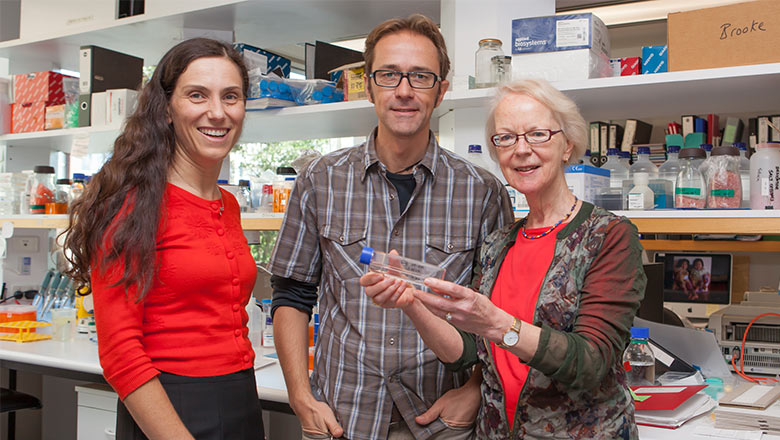Search
Showing results for "Au"

News & Events
Physical activity vital to diabetes managementParents of children with Type 1 Diabetes often feel they need to wrap their child in cotton wool rather than let them get on with the job of being a kid and eve

News & Events
Bianca gives backMeet Bianca Bertrand – she’s a glass half-full rather than half-empty person, always looking at the positives in life, especially when it comes to managing T1D

News & Events
Netball star on the ballWest Coast Fever netball player Verity Charles is proof that living with T1D doesn't mean your sporting dream has to take a backseat to your condition

News & Events
Diabetes education at home trialWe recently ran a study to compare the traditional model of care with a family-friendly, slower-paced, home-based alternative.

News & Events
A cell change that drives leukaemiaIt is now known that the HOX11 gene is permanently activated in the leukaemia cells and it drives the disease.

News & Events
Vaccination timing essentialWe all know how important it is to vaccinate a child against harmful diseases but vaccinating a child at the right wrong age can cost lives.

News & Events
Overseas trip will help unlock the asthma puzzleOne in ten Australians have asthma and Dr Kimberley Wang from The Kids Research Institute Australia is on a mission to find out what causes it.
News & Events
Tackling FASD in youth in detentionResearchers at The Kids for Child Health Research have been awarded more than $1.4M to assess how many juvenile offenders are affected by FASD.

News & Events
Twins talk half as much at twoA world first study of language development in toddler twins confirms the widely held belief that twins start to talk later than single-born children.

News & Events
Overprotective Parenting and Childhood Obesity Linked in Study FirstNew research from The Kids Research Institute Australia has revealed, for the first time, a link between childhood obesity and higher levels of protective parenting.
